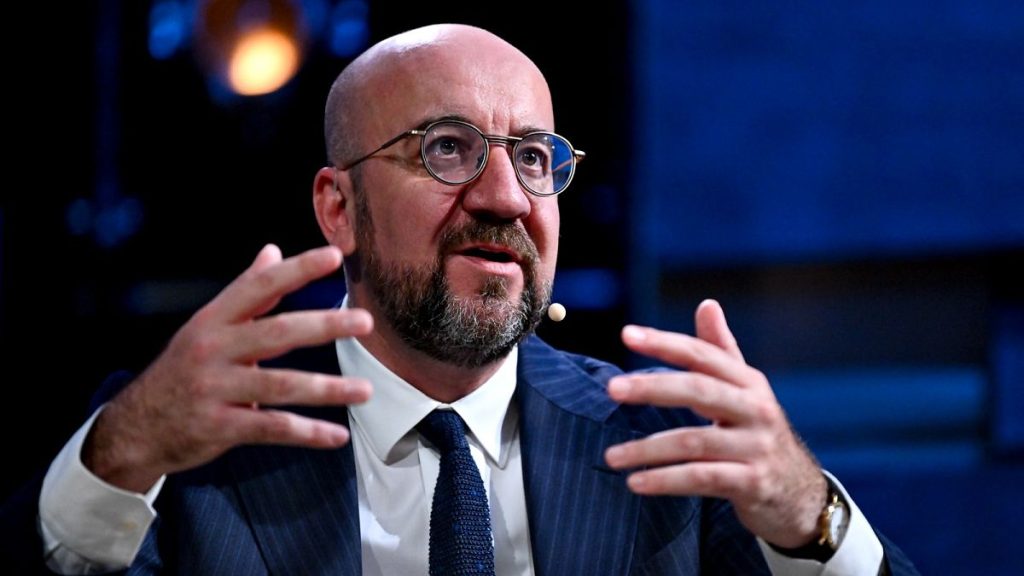Charles Michel, the president of the European Council, believes that it is possible to cooperate with some far-right personalities, especially when it comes to supporting Ukraine, defending democratic principles, and strengthening the European Union. While not mentioning any specific parties or personalities, Michel’s comments seemed to refer to Italian Prime Minister Giorgia Meloni, whose three-party coalition is considered the most right-wing in Italy’s history. Despite initial concerns about Meloni’s Eurosceptic tone, she has proven to be constructive in key issues such as support for Ukraine and migration reform, while remaining opposed to the Green Deal. Meloni and her allies from the European Conservatives and Reformists (ECR) group are seeking to secure a substantial share of seats in the next European Parliament in order to influence the agenda to the right.
This shift towards the right has raised questions about how much traditional mainstream parties are willing to accommodate or align with the demands from the extreme right. The European People’s Party (EPP) has previously struck working arrangements with ECR forces in various countries, including Italy, the Czech Republic, Sweden, and Finland. In a recent move, Croatian Prime Minister Andrej Plenković, a prominent EPP politician, signed a new deal with the ultra-nationalist Homeland Movement, a party intending to join the far-right Identify and Democracy (ID) group in the European Parliament. This development has reignited concerns about the normalization of the far right, which progressives argue poses a threat to European democracy and integration.
Despite concerns from his liberal family, Renew Europe, which is firmly opposed to cooperation with ECR or ID, Michel emphasized the importance of focusing on the substance of policies and decisions rather than the specific political affiliations. He expressed confidence that centrist parties would continue to play an essential role in the EU’s future even amidst the rise of far-right parties. Michel highlighted the need for results in collaboration with parties that share common goals and views on important topics, regardless of their political orientation. While some parties within the far right may be willing to cooperate, others may not be suitable partners for collaboration based on their beliefs and agendas.
As Michel approaches the end of his mandate at the top of the European Council later this year, he reflected on the importance of policies and decisions in shaping the future of the EU. He acknowledged the typical worries and concerns that arise before elections but remained calm and confident about the role centrist parties will continue to play in the EU. Despite the differing views within the political landscape, Michel’s focus on cooperation based on shared goals and values underscores the complex dynamics at play in European politics. The ongoing debate about the normalization of far-right ideologies and the potential implications for democracy and integration remains a central theme as Europe approaches the upcoming elections to the European Parliament.


